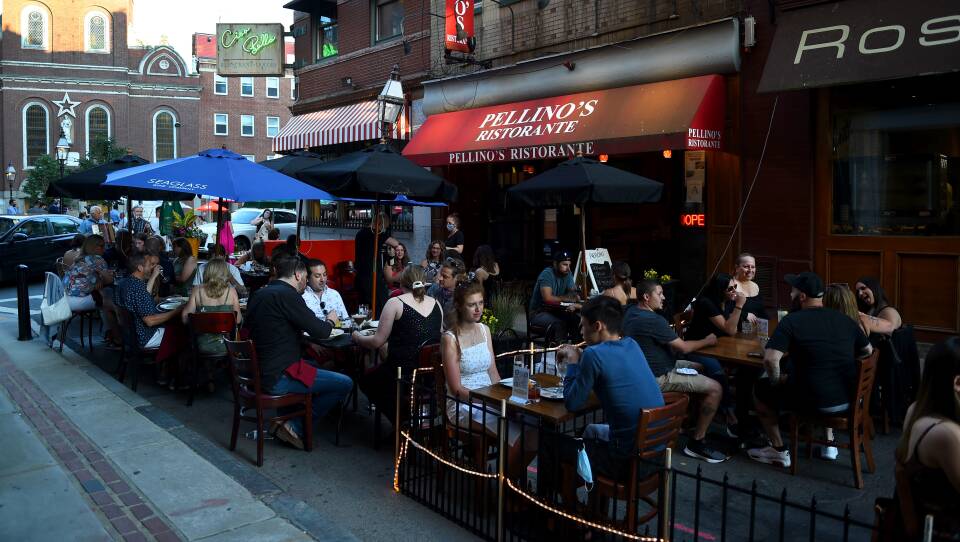Greater Boston tourism seems to be looking up lately — the U.S. Open in Brookline this week is giving a big boost to local hotels and restaurants, while Freedom Trail tours and duck boats are looking busy — but the American Hotel & Lodging Association's latest report projects a travel revenue loss this year for state hotels of more than 44% compared to 2019, a loss of almost $1 billion.
“The city of Boston and the state of Massachusetts ended up losing about $5 billion in tax revenue that they would have otherwise had, had the travel trends continued coming out of 2019 — and that is significant. It impacts everyone. Hundreds of thousands of jobs have been lost, and those are beginning to come back,” said Chip Rogers, president and CEO of the American Hotel and Lodging Association.
Rogers spoke at a press event Friday at Boston’s Omni Parker House hotel, where local trade groups projected some outward optimism, saying pent-up leisure travel demand was evident in solid spring numbers for Greater Boston, and that conference and business meetings were “back on track,” according to Beth Stehley, senior vice president of sales at the Greater Boston Convention Visitors Bureau.
Still, in the hotel industry itself, there’s a feeling that the state needs to do much more to help the sector — the third biggest employer in Massachusetts — get fully back on its feet.
"As you watch your television in the evenings on the network stations, and you look at the likes of New York State and California and others and the promotions that they're doing to promote their states, we've never in Massachusetts been in a position to do this,” Stephen Johnston told GBH News. Johnston is the managing director and general manager of the Boston Harbor Hotel, and chair of the board of directors of the Massachusetts Lodging Association.
"There's a huge amount of tax collected from us as hospitality providers every year that goes into the general fund, and only the tiniest fraction of it — and I really mean the tiniest fraction of it — gets spent on promoting the state for future visits,” Johnston added. “And this has been the case for the longest time. And our hope was that this crisis would bring about a change and a realization that you have to invest to develop future business. But still, it seems that our requests are falling on deaf ears. It's a real shame. And it leaves us at a great disadvantage to other states.”
Johnston said his five-star hotel in Downtown Boston was in a better position than many, and was weathering the pandemic’s financial downturn relatively well overall. He said they actually had good business last summer, and they are hoping— albeit “sitting on the edge" of their seats — for another strong season.
Still, Johnston said, a general sense of a prospective rosiness for Greater Boston hotels this summer could be misleading.
“For example, if you're hearing hotels are doing well this week, the U.S. Open is in town, hotels are booked out ... nobody would deny that,” said Johnston. “But just because the hotels are doing well this week doesn't mean they're necessarily having a great summer or a great 2022. It requires more than just one swallow to make a summer. And that's part of the problem. You know, you hear these messages that places are doing well, but it's not across the board and it's not every week of the year.”








